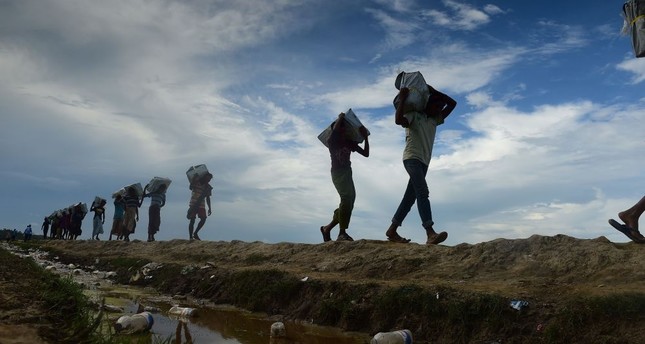
Daily Sabah - 23.10.2017
The full history of the Arakan coastal region of Myanmar has yet to be examined by an equitable historian. The region has most recently been engulfed in a fierce conflict resulting in bloodshed and suffering involving the Muslim people (the Rohingya) of that region and the government of Myanmar.
The root of the conflict can be traced back to the issue of whether certain ethnic groups are indigenous to the region or not. The region has historically been referred to as “Arakan”. However, the Myanmar government formally codifies the Arakan region as the “Rakhine State” and argues that all Muslims in Arakan are the remnants of British colonization that previously ruled over these lands. Yet historical records establish that Muslims begun to enter the region in significant numbers during the Kingdom of Mrauk U period in 15th century.
Another question that needs to be answered is who the Rohingya are. If you pose this question to the government of Myanmar or the Buddhist majority in the country, for them, there may be no such people as the Rohingya. In truth, there are two groups of people residing in Arakan; the Muslims and the Buddhists. The hardest part is naming these groups. The Myanmar government refers to the Muslims as “Chittagonians” or “Chittagonians Bengals.” This is done in order to delegitimize their claim for equal citizenship and in order to argue that these Muslims were brought from Bengal region by the British to colonize the Arakan region. Despite limited usage of the term in 19th century, the term “Rohingya” began to gain currency in the 20th century.
The Rohingya people are composed of four groups that migrated to Arakan between 15th and 19th centuries. The most recent Muslim group that settled in the Arakan region came to the region almost 100 years ago. They can hardly be referred to as new comers, consequently, this argument cannot be used to deny citizenship to the Rohingya. The second ethnic group in the region consists of Buddhists, who are referred to as the “Maghs” or “Arakanese”.
We must now look at the issue of citizenship. The issue of citizenship is a crucial component of the conflict. Since the independence of Myanmar from the British Empire in 1948, people of Rohingya, Indian, and Chinese descent have been excluded from citizenship. The 1982 citizenship law introduced in Myanmar state was especially restrictive in that it created three categories of citizenship. These three categories were “full”, “associate”, and “naturalized”. Such citizenship categories distinguish Myanmar from other countries. The Rohingya almost exclusively could not meet any of citizenship criteria.
The level of discrimination was furthered with the introduction of a color-coded “Citizens Scrutiny Cards” (CRC) system in 1989. According to the CRC system, pink cards were to be used by full citizens, blue cards by associate citizens, and green by naturalized citizens. Most of the Rohingya’s were not issued any type of citizenship card. Only in 1995, after intensive pressure from the UNHCR, Myanmar authorities started issuing Rohingya with a white color Temporary Registration Card.
This citizenship scheme, besides being inherently discriminatory in nature, has also practical effects on the Rohingya. One of these effects is travel restrictions. Due their stateless (due to lack of citizenship) status, the Rohingya’s are confined to their villages. They need to apply for a travel visa to the government in order to travel outside their villages. If for any reason they overstay the time allowed by their travel pass, they are punished by being expelled from Myanmar.
Another discriminatory policy faced by the Rohingya population is the marriage authorization order. Since the late 1990s, the Rohingya’s in the North Arakan region have had to apply for a marriage permission before getting married
The resounding victory of Aung San Suu Kyi and her National League for Democracy in the national elections in November 2015 was expected to usher in a new era for Myanmar. It did indeed bring new hope for Buddhist majority for the country. However, for the Rohingya minority, nothing has really changed. In fact, Aung San Suu Kyi, before the national election, ordered a purge of all Muslim candidates in her party to appease the Buddhist majority of Myanmar.
The consequence of more 70 years of segregation and discrimination by the Myanmar state has had severe consequences. For several generations, the Rohingya people have been forced live in economically deplorable conditions and without access to proper education. This has become the perfect breeding ground for extremism. Since 2013, terrorist organizations such as Al Qaeda and Daesh (ISIS) have intensively targeted the Rohingya for recruitment. This partly paid off in 2016. In October 2016, between 250-300 terrorist armed with knives and sticks attacked polices stations in the Arakan region, killing many Myanmar soldiers.
Myanmar is currently referred to as an information black hole. Thus, it is extremely difficult to get an exact figure on the number of civilian casualties in the conflict. Yet the satellite imagery does show burned down villages, and the refugees who have fled to Bangladesh recount stories of rape, mass murder, and infanticide. Myanmar has been accused by the international community and the United Nations as committing one of the swiftest incidents of ethnic cleansing in the 21st century, some even claiming that these events constitute genocide.
What is even more worrying is that the conflict in Myanmar seems to be have the potential to spill over to other countries such as Sri Lanka. Both Muslims and Buddhists in Sri Lanka have held counter demonstrations related to the events taking place in Arakan. Both religious groups seem to view the events taking place there not from a humanitarian perspective, but from a religious perspective.
Despite the lack of proper international response, countries such as Turkey have tried to respond to this tragedy in an appropriate manner. Turkey has asked Bangladesh to open its doors to Rohingya refugees, and in return, has offered to bear the expenses of the refugees. Turkey kept its promise, and began to send food, clothing, and medicine to the refugee camps in Bangladesh.
No matter in what century we are living in, humanity seems to be still afflicted by the same plagues of past centuries. What we must understand is, unlike in the past, conflicts in one region can now quickly spread to other places. Today, a conflict in Arakan between Buddhists and Muslims may be a cause for conflict tomorrow in Sri Lanka or in India. We should understand that simmering tensions and ongoing injustice may eventually breed extremism and armed conflict. This cannot be simply solved just by words alone. Ignoring the plight of helpless human beings eventually has consequences for the peace, security, and stability of the international community.
*Photo: https://www.dailysabah.com
Link to the where the article was originally published: https://www.dailysabah.com/op-ed/2017/10/24/the-rohingya-victims-of-historical-prejudice-conflicting-definitions
© 2009-2025 Avrasya İncelemeleri Merkezi (AVİM) Tüm Hakları Saklıdır
Henüz Yorum Yapılmamış.
-
 MACRON, AB MARŞI NEŞEYE ÖVGÜNÜN NEDEN BALKANLAR İÇİN ÇALINMASINA ŞÜPHEYLE YAKLAŞIYOR? - HÜRRİYET DAILY NEWS - 01.05.2018
MACRON, AB MARŞI NEŞEYE ÖVGÜNÜN NEDEN BALKANLAR İÇİN ÇALINMASINA ŞÜPHEYLE YAKLAŞIYOR? - HÜRRİYET DAILY NEWS - 01.05.2018
Teoman Ertuğrul TULUN 03.05.2018 -
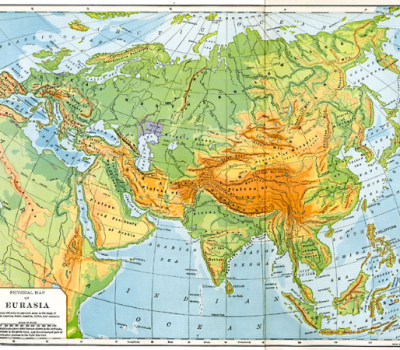 IS EURASIANISM A MONOLITHIC CONSTRUCT? - 19.01.2024
IS EURASIANISM A MONOLITHIC CONSTRUCT? - 19.01.2024
Teoman Ertuğrul TULUN 22.01.2024 -
 EMMANUEL MACRON AGITATES AND DESTABILIZES EUROPE - DAILY SABAH - 21.11.2019
EMMANUEL MACRON AGITATES AND DESTABILIZES EUROPE - DAILY SABAH - 21.11.2019
Teoman Ertuğrul TULUN 25.11.2019 -
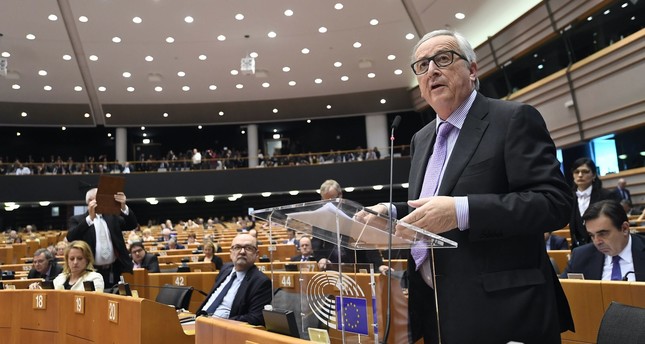 BALKANLARDA İSTEKSİZ AB GENİŞLEMESİ - DAILY SABAH - 14.05.2018
BALKANLARDA İSTEKSİZ AB GENİŞLEMESİ - DAILY SABAH - 14.05.2018
Teoman Ertuğrul TULUN 23.05.2018 -
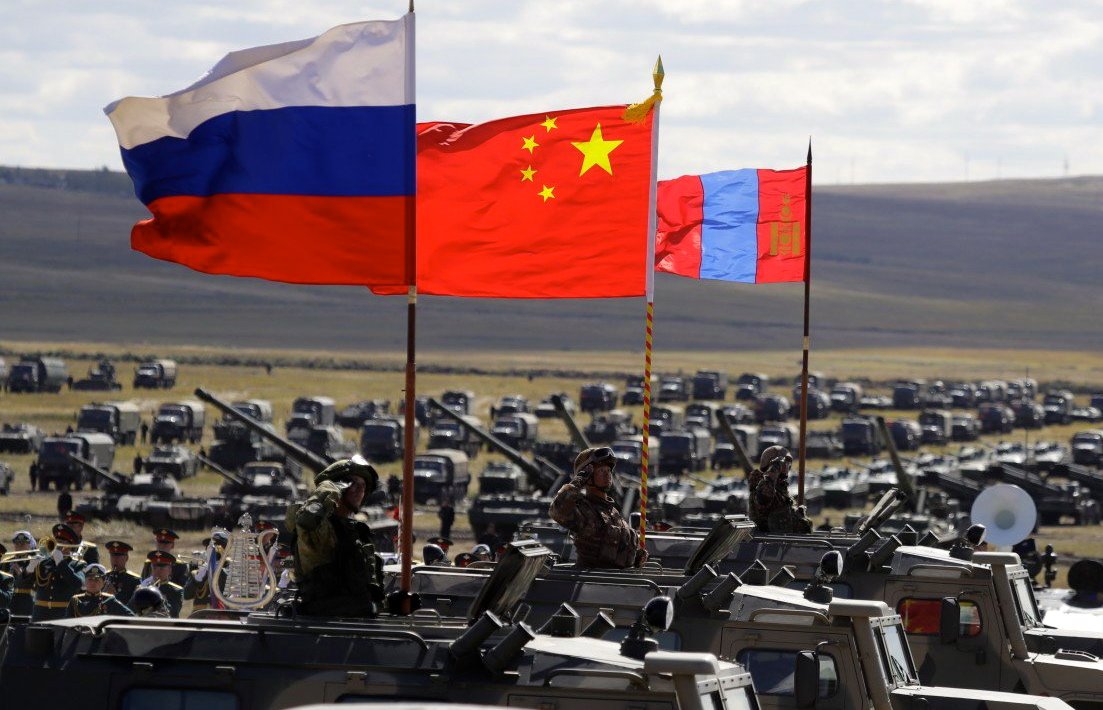 AVRASYA’DA İVEDİ İŞBİRLİĞİNE DAYALI YENİ BİR GÜVENLİK DÜZENİ GEREKSİNİMİ - HÜRRİYET DAILY NEWS - 19.10.2018
AVRASYA’DA İVEDİ İŞBİRLİĞİNE DAYALI YENİ BİR GÜVENLİK DÜZENİ GEREKSİNİMİ - HÜRRİYET DAILY NEWS - 19.10.2018
Teoman Ertuğrul TULUN 24.10.2018
-
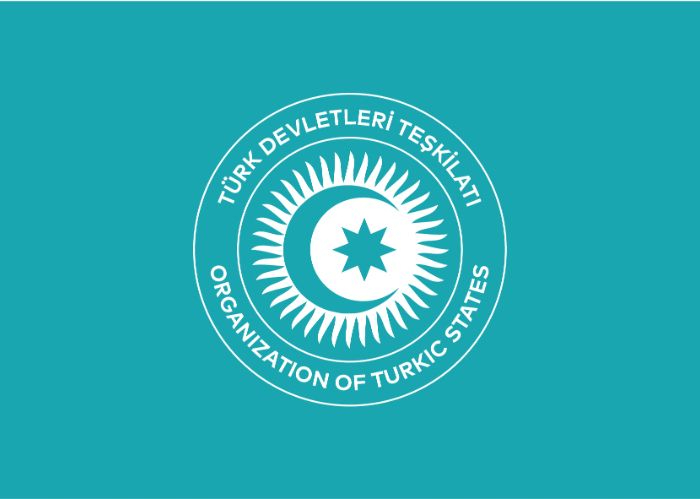 TÜRK DÜNYASI 2040 VİZYONU - TÜRK DEVLETLERİ TEŞKİLATI - 13.11.2021
TÜRK DÜNYASI 2040 VİZYONU - TÜRK DEVLETLERİ TEŞKİLATI - 13.11.2021
Türk Devletleri Teşkilatı 15.11.2021 -
 ALMANYA’NIN BOSNA-HERSEK’TEKİ YÜKSEK TEMSİLCİ ADAYI, CHRİSTİAN SCHMİDT VE ONUN MUHTEMEL BONN YETKİLERİNİ KULLANMASI - 02.05.2021
ALMANYA’NIN BOSNA-HERSEK’TEKİ YÜKSEK TEMSİLCİ ADAYI, CHRİSTİAN SCHMİDT VE ONUN MUHTEMEL BONN YETKİLERİNİ KULLANMASI - 02.05.2021
Senad SEVDİK 05.05.2021 -
 THREE SEAS INITIATIVE AND NATO ENLARGEMENT - 17.12.2021
THREE SEAS INITIATIVE AND NATO ENLARGEMENT - 17.12.2021
Deniz ÜNVER 17.12.2021 -
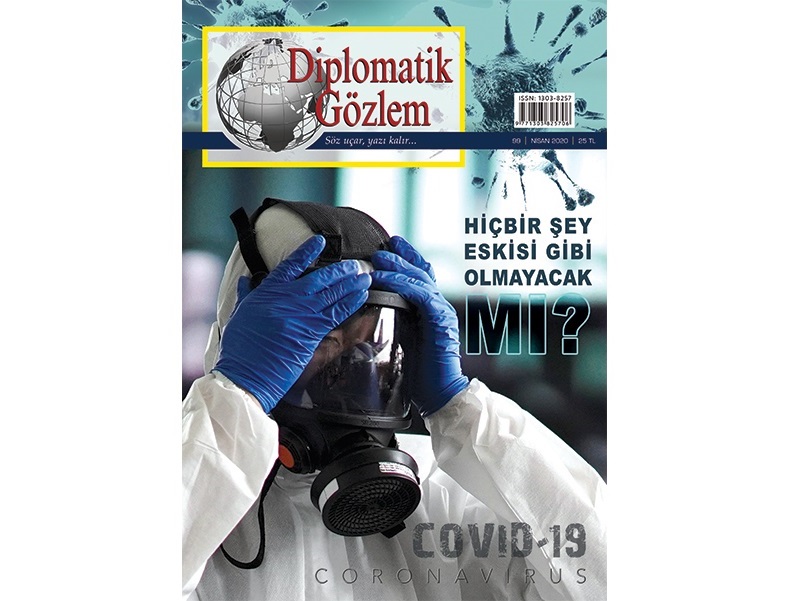 YÜZÜNCÜ YILINDA TÜRKİYE-ERMENİSTAN İLİŞKİLERİ - DİPLOMATİK GÖZLEM - NİSAN 2020
YÜZÜNCÜ YILINDA TÜRKİYE-ERMENİSTAN İLİŞKİLERİ - DİPLOMATİK GÖZLEM - NİSAN 2020
Alev KILIÇ 03.04.2020 -
AB MÜZAKERELERE KATILMAYA KARARLI
Ata ATUN 06.07.2015


